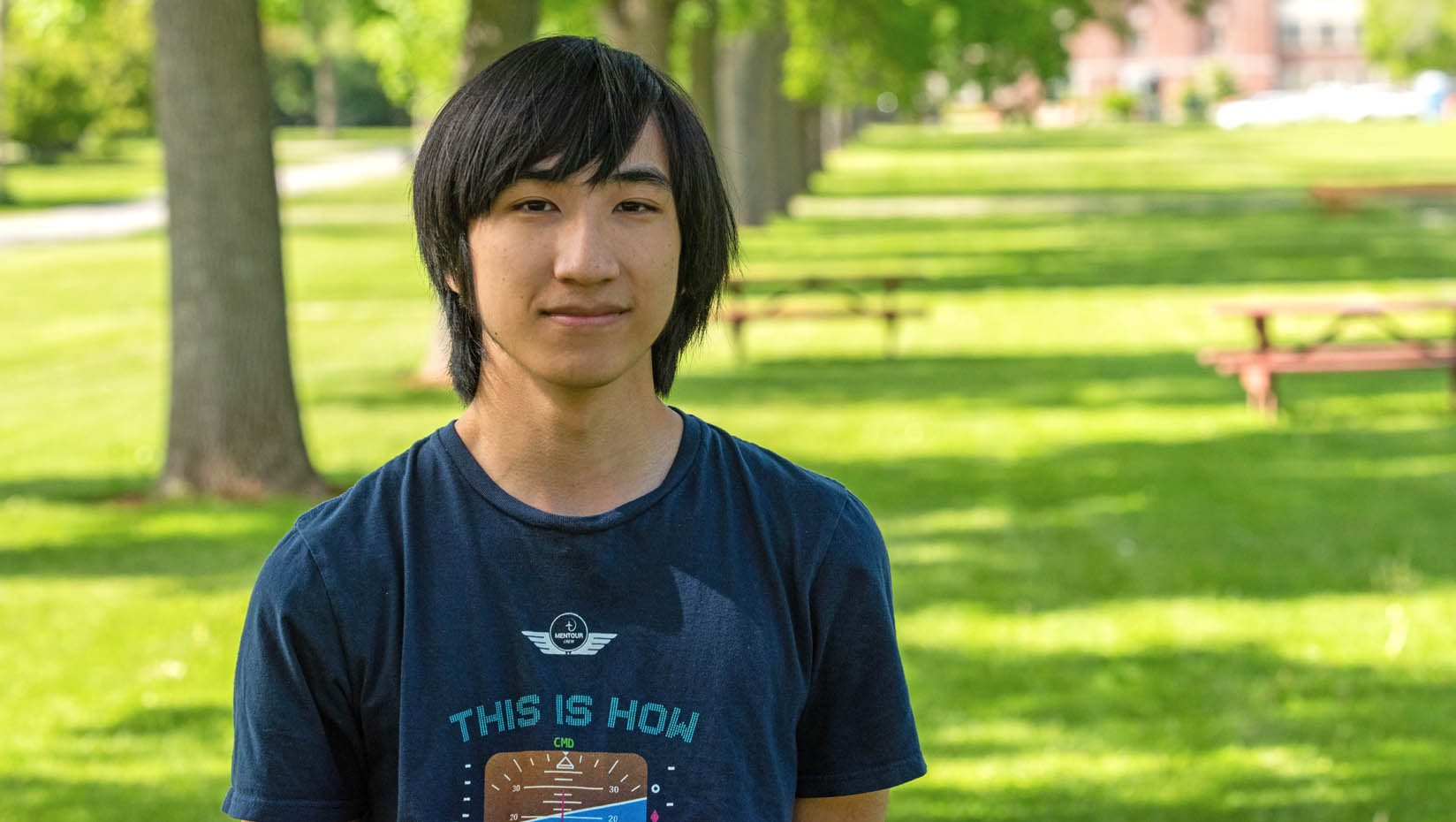
Vinh-Nhan Ngo: Physics research and pilot certified
Getting pilot certification and flying a plane may not be the first things that come to mind when you think of college experiences. But for Vinh-Nhan Ngo, of Bangor, Maine, these have always been his goals. As a first-year student, Nhan became a member of the UMaine Flying Club and as a sophomore, obtained his pilot certification and was elected president of the student organization. Nhan says that being able to achieve his dream of flying has given him the opportunity to see a new perspective of the world and also share that experience with his friends and family.
Nhan is hoping to become a certified flight instructor.
“I’ve always enjoyed teaching people the basics of flying when I take them up and I think it would be fun to take on real students,” he says. Nhan hopes to get his instrument rating next year, which will allow him to fly in more adverse weather and become a safer pilot.
Nhan will be graduating from UMaine a year early with a major in physics and three minors, political science, astronomy and math. Through his academic success he has been awarded the UMaine Presidential Award, has been recognized as a James S. Stevens Outstanding Junior and is a Sigma Pi Sigma inductee, the honor society for physics. After he graduates, Nhan would like to attend graduate school.
In addition to the Flying Club, Nhan is also involved on campus as the treasurer of the Society of Physics Students and is a member of Mainely Voices.
Nhan is currently working with Sam Hess’ lab group in biophysics and super resolution microscopy research. Their team is working on flu and COVID-19 to investigate how they behave and infect cells. Nhan says that Hess has made his UMaine experience better and describes him as a professor that is “always very accommodating and teaches in a very intuitive way.”
Nhan describes the main project that Hess’ group has been working on as “investigating clusters of influenza viral protein hemagglutinin (HA). It is known to colocalize with a lipid called PIP2, so we can see both, and we can investigate the clustering mechanism. By finding drugs that disrupt the clustering, the viral replication can be slowed, and these methods have impacts on other viruses such as COVID.” With his concentration on the physics side of this project he says he will mainly be “trying to find models of identification in fluorescence photoactivation location microscopy images, such as programs to identify size and position of clusters.”
A program that has helped Nhan to succeed at UMaine has been the Maine Learning Assistants Program, which he says “has been helpful for my bottom line when I work as an MLA, and also having peers your age who are excited to teach is a great way to learn.”
Contact: Hope Carroll, hope.carroll@maine.edu
